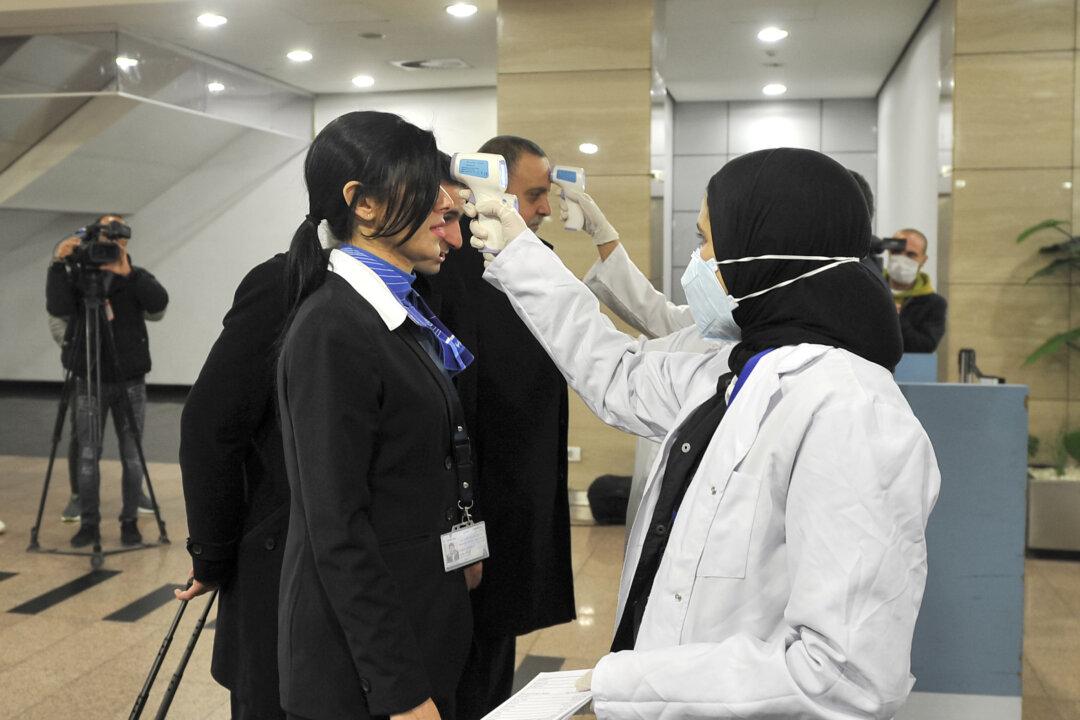An Egyptian cruise ship potentially linked to coronavirus cases in the United States, Canada, France, and Taiwan was placed under quarantine after 12 workers tested positive, Egyptian authorities said.
Egypt’s health ministry said none of the workers were showing symptoms of the virus, which typically include fever, shortness of breath, and coughing.





